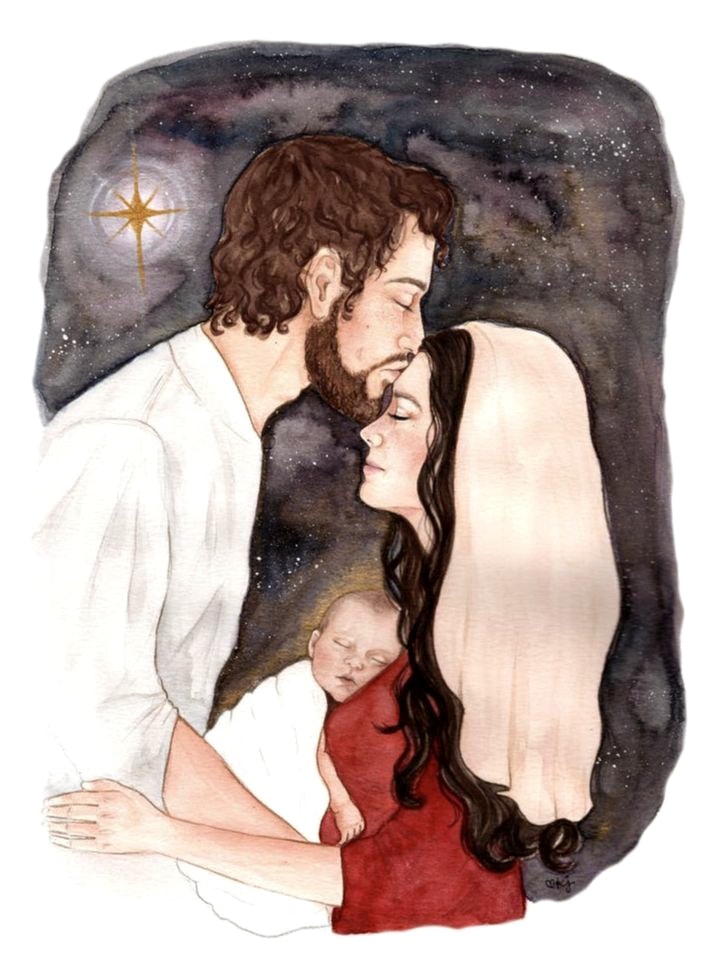
LK.2:1-14
There was a young professional who lived alone in a big city. He used to buy fruits and vegetables regularly from an 85-year-old grandma. He used to tell her: “Grandma, the vegetables and fruits that you sold me yesterday were rotten.” Could you check them? The old woman used to take a bite from one of the fruits and find it to be perfectly alright. “Son, I think these are fine to eat; you can safely take them home.” The man reluctantly agrees. This happens regularly, on a daily basis. This man buys fruits and vegetables, next day he brings and wants the old grandma to taste and see whether it is rotten? Finally fed up with this ordeal, the old grandma asked him, “Why do you do it every day?” The young man did not answer, but the narrator continues. The young man insisted the old lady take one or two bites of the fruit because she looked very frail. He notices her long working hours without breaks, and this was the best way for her to get nutrition by asking her to check whether the fruits are rotten. Once the green seller who sat next to this lady’s shop in the market asked, “Why do you entertain this fellow every day?” “I know he cares about me, and he comes here every day to ensure that I eat. He thinks I am not aware of his kindness, but I am. Whenever he is not looking, I slip a portion of extra fruits or vegetables into his bag.” Where there is love and sacrifice, there is Christmas.
The root word of Christmas is “Cristemasse,” which means the sacrifice of Christ. Jesus descended from his comfort zone of eternity to our miseries and suffering. Jesus could have continued a somewhat similar lifestyle by being born in a palace and leading a royal life. In fact, the Israelites expected such a royal Messiah, the descendent of King David. There was a prophecy that the Messiah would be born in Bethlehem, the city of King David. We see the census ordered by Ceaser. This census was a means used by God to fulfil His plan. The human history was directed by God for the fulfilment of salvation history. Thus, Messiah who is destined to become the living bread was born in the city of Bethlehem which means the house of bread.
How can the descendent of King David be born in a manger? The birth of Jesus in Bethlehem does not refer to the glory of King David. He was a humble shepherd when he was anointed as king of Israel. The city indicates the humble beginnings of King David. Similarly, the birth of Jesus in a manger reminds us of the humble beginning of Jesus, the good shepherd par excellence who lays down his life for his sheep. The news about his birth was announced to the shepherds who were in the field. They were in darkness, and they saw the light. Thus, the prophecy of Isaiah is being fulfilled. “The people who walked in darkness have seen a great light.” (Is. 9:2) The good news was first proclaimed to the shepherds of Israel by the angels. The sheep of that region was meant for sacrifice in the Jerusalem temple. Similarly, Christ is also meant to be a sacrificial lamb in the temple so that we may be filled with hope and strengthened to endure misery and suffering with endurance.
The sign given to the shepherds was: “You will find a child wrapped in bands of cloth and lying in a manger.” (Lk.2:12) When the good news was announced to Zechariah and Mary, the angel had already given them signs. The shepherds do not ask for a sign because they are lost in the magnificent sight of angels coming down from heaven. The angel says ‘today’ the saviour is born for you in the city of David. It is an assurance for humanity of all time that Jesus was not born two thousand years ago; his birth needs to happen “today” in our hearts.
Every Christmas is a reminder for each one of us to imitate the self-giving love of Jesus. The child was wrapped in a bands of cloth is a sign for all of us that God is with us. God is with humanity as it struggles in the darkness. He is our light. Child Jesus wrapped in a band of cloth becomes a sign for us that we are never alone in our struggles and difficulties. Jesus sanctified our human existence by being present and also experiencing our poverty, misery, and suffering. As we celebrate this Christmas, let us imitate this self-giving love of Jesus in our possible ways that we become signs like child Jesus to our fellow brethren that they are never alone, we are with them in their moments of poverty, and miseries as brothers in Jesus Christ who is born for them today in the city of David.…